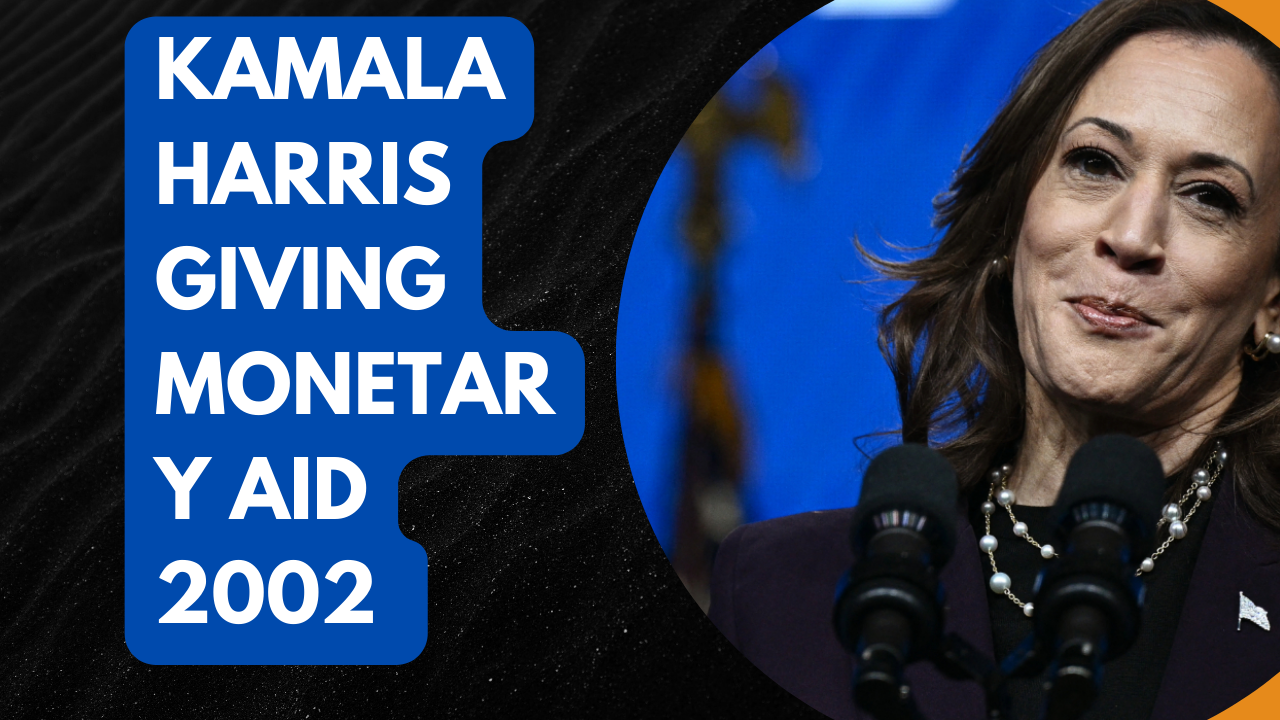Kamala Harris, known today as the Vice President of the United States, has a long history of public service, advocacy, and policy-making. One notable aspect of her career that resonates deeply with many is her approach to monetary aid in 2002. While her rise to national prominence came later, Harris’s early actions in this area laid the groundwork for her future initiatives and provided insights into her broader vision for economic justice.
The Economic Context of 2002
The early 2000s were marked by significant economic challenges in the United States. The tech bubble had burst, leading to a recession, and the aftershocks of the September 11 attacks were still being felt across the country. Many Americans were facing job losses, reduced incomes, and financial insecurity. In this context, discussions around monetary aid and economic support for struggling communities were more critical than ever.
Kamala Harris, serving as a District Attorney in San Francisco at the time, was acutely aware of these challenges. Her position in a city with significant income disparities and a high cost of living made the issue of economic support particularly pressing. Harris’s early efforts in 2002 reflect her deep understanding of the need for targeted aid to support those most affected by economic downturns.
Kamala Harris’s Early Advocacy for Economic Support
In 2002, Harris was not yet a household name, but she was already making waves with her innovative and compassionate approach to justice. One of the key aspects of her work involved advocating for economic policies that would directly benefit the most vulnerable populations. She understood that addressing economic disparities was not just a matter of charity but a fundamental issue of justice.
Harris’s approach to monetary aid in 2002 was multifaceted. She recognized that economic support needed to be tailored to address the specific needs of different communities. For instance, low-income families, small businesses, and minority communities were often disproportionately affected by economic downturns. Harris advocated for policies that would provide these groups with the financial assistance they needed to survive and thrive.
Policy Initiatives and Community Impact
While specific monetary aid programs from 2002 may not be as well-documented as her later work, Harris’s approach to economic justice during this period can be seen in her broader policy initiatives. She was a strong proponent of community-based solutions that empowered local organizations to distribute aid effectively. This approach ensured that aid reached those who needed it most and was not lost in bureaucratic red tape.
Harris also understood the importance of financial literacy and education in breaking the cycle of poverty. She supported initiatives that aimed to provide individuals with the tools they needed to manage their finances effectively, access available resources, and build a more secure future. These efforts were particularly crucial for communities that had historically been marginalized and excluded from economic opportunities.
Influence on Future Policies
Kamala Harris’s early work in monetary aid and economic support in 2002 was just the beginning of her long career in public service. The principles she championed during this time—such as targeted aid, community empowerment, and economic justice—have continued to influence her work as she rose through the ranks of government.
As Attorney General of California and later as a U.S. Senator, Harris continued to advocate for policies that supported the economic well-being of all Americans, particularly those in underserved communities. Her commitment to these issues was evident in her support for expanding access to affordable housing, increasing the minimum wage, and implementing more equitable tax policies.
In her current role as Vice President, Kamala Harris continues to prioritize economic justice and monetary aid as key components of her policy agenda. Her early work in 2002 laid a strong foundation for these efforts, demonstrating her longstanding commitment to creating a fairer and more just economy for all.
Conclusion: Kamala Harris’s Enduring Commitment to Economic Justice
Kamala Harris’s actions in 2002 regarding monetary aid were a clear indication of her commitment to economic justice. Her early advocacy for targeted aid, community empowerment, and financial literacy set the stage for the broader policies she would later champion. As we reflect on her career, it’s clear that these early efforts were not just a response to the economic challenges of the time but part of a larger vision for a more equitable society.
Harris’s work in 2002 serves as a reminder of the importance of addressing economic disparities and providing support to those who need it most. Her legacy in this area continues to shape her policies and influence the national conversation around monetary aid and economic justice.
